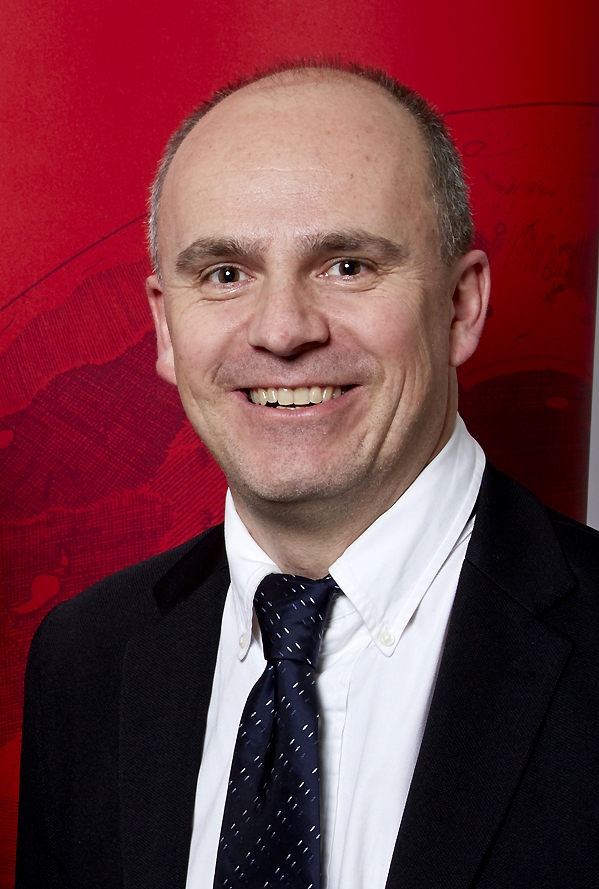
|
|
|
|
 |
Public Engagement and EDI Promotion |
Jump to: Informing Policy Making | EDI Promotion | Media | Research Communication
|
|
|
|
||
|
|
||
|
 |
 How AI is making affordable air pollution sensors more accurate, by Jean-Christophe Nebel & Farzana Rahman
How AI is making affordable air pollution sensors more accurate, by Jean-Christophe Nebel & Farzana Rahman
The Conversation UK, March 14, 2025 7.08pm GMT (over 3,000 readers) "Small air sensors that harness the power of AI could transform pollution monitoring. |
 |
 We created the first AI-powered solar electricity backup system for houses in sub-Saharan Africa, by Masoud Salehi Borujeni, Eng Ofetotse & Jean-Christophe Nebel
We created the first AI-powered solar electricity backup system for houses in sub-Saharan Africa, by Masoud Salehi Borujeni, Eng Ofetotse & Jean-Christophe Nebel
The Conversation UK, January 25, 2022 1.45pm GMT (over 11000 readers) "Sub-Saharan Africa is one of the world’s most sunlit regions. A prototype generator uses that sunlight in place of diesel to support unreliable electricity grids". Our research is featured in this article. |
 |
 Los ordenadores son vigilantes novatos; la genomica les enseña a ser mejores, by Jean-Christophe Nebel & Francisco Florez Revuelta
Los ordenadores son vigilantes novatos; la genomica les enseña a ser mejores, by Jean-Christophe Nebel & Francisco Florez Revuelta
The Conversation Spain, October 30, 2018 23.35 CET (over 900 readers) "La videovigilancia automatizada todavia no es fiable, pero las tecnicas de analisis genetico pueden ayudar". Our bioinformatics research is featured in this article. |
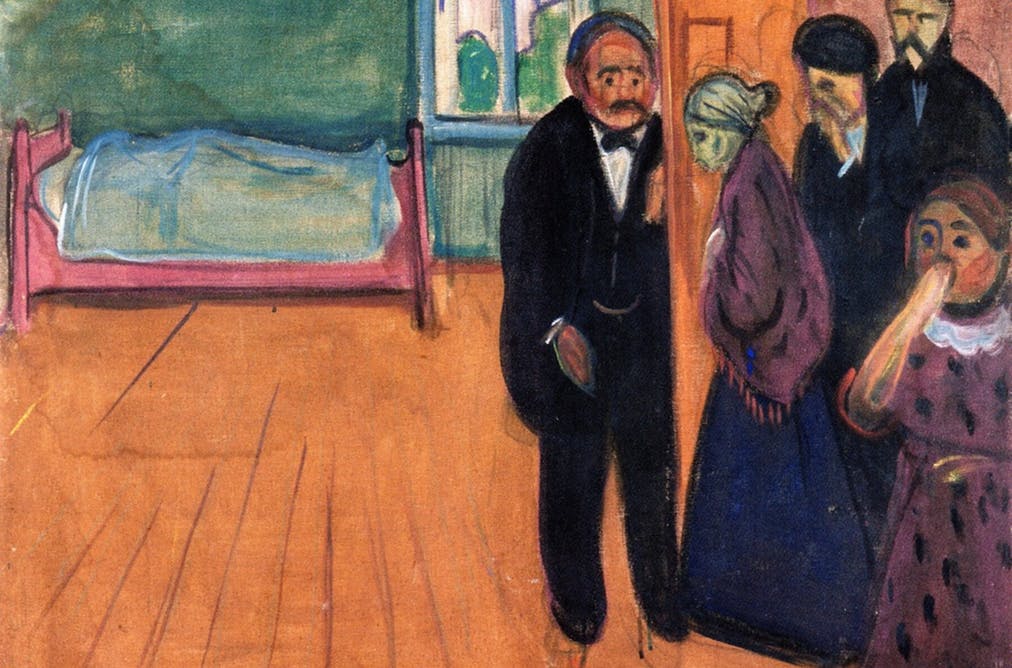 |
 Our discovery of how humans experience the smell of death may one day help save lives, by Jean-Christophe Nebel
Our discovery of how humans experience the smell of death may one day help save lives, by Jean-Christophe Nebel
The Conversation UK, February 19, 2018 11.32am GMT (over 25,000 readers) "Genetic research could help us produce new ways of diagnosing and treating depression and suicidal ideation, including a 'death smell test'". Our bioinformatics research is featured in this article. This article was republished in The Independent |
 |
 Reconnaitre des visages dans une video en s'inspirant de l'analyse de l'ADN, by Jean-Christophe Nebel
Reconnaitre des visages dans une video en s'inspirant de l'analyse de l'ADN, by Jean-Christophe Nebel
The Conversation France, November 6, 2017 10.39pm GMT (over 2,500 readers) "La videoprotection est censee assurer la securite du public. Mais comment traiter des sequences de plus en plus nombreuses ? En considerant les images animees comme des mutations genetiques." Our research on 'Genomics-inspired Computer Vision' is featured in this article. |
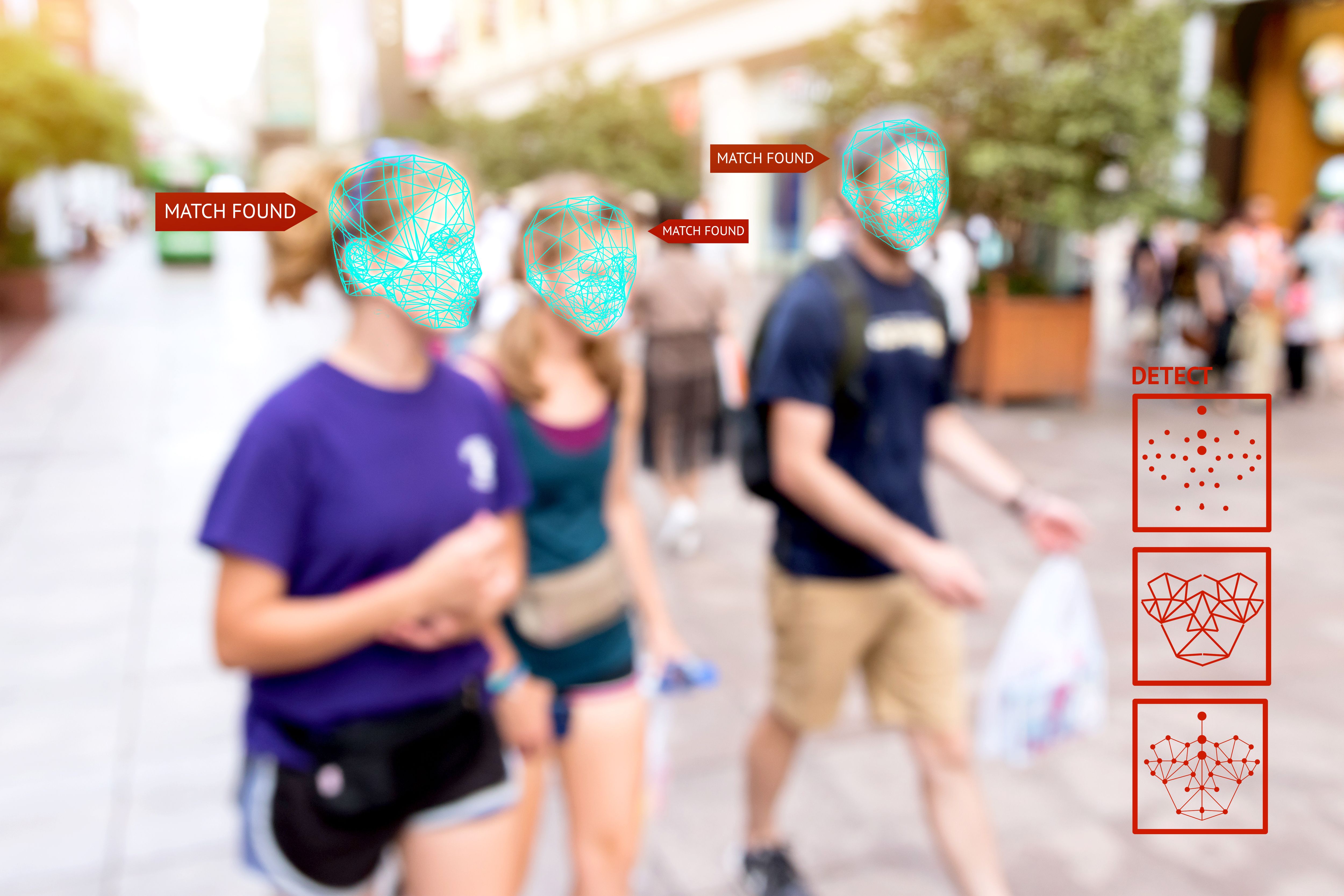 |
 DNA techniques could transform facial recognition technology, by Jean-Christophe Nebel
DNA techniques could transform facial recognition technology, by Jean-Christophe Nebel
The Conversation UK, October 20, 2017 2.36pm BST (over 24,000 readers) "Treating video like a mutating gene could improve surveillance software." Our research on 'Genomics-inspired Computer Vision' is featured in this article. This article was republished in Scientific American |
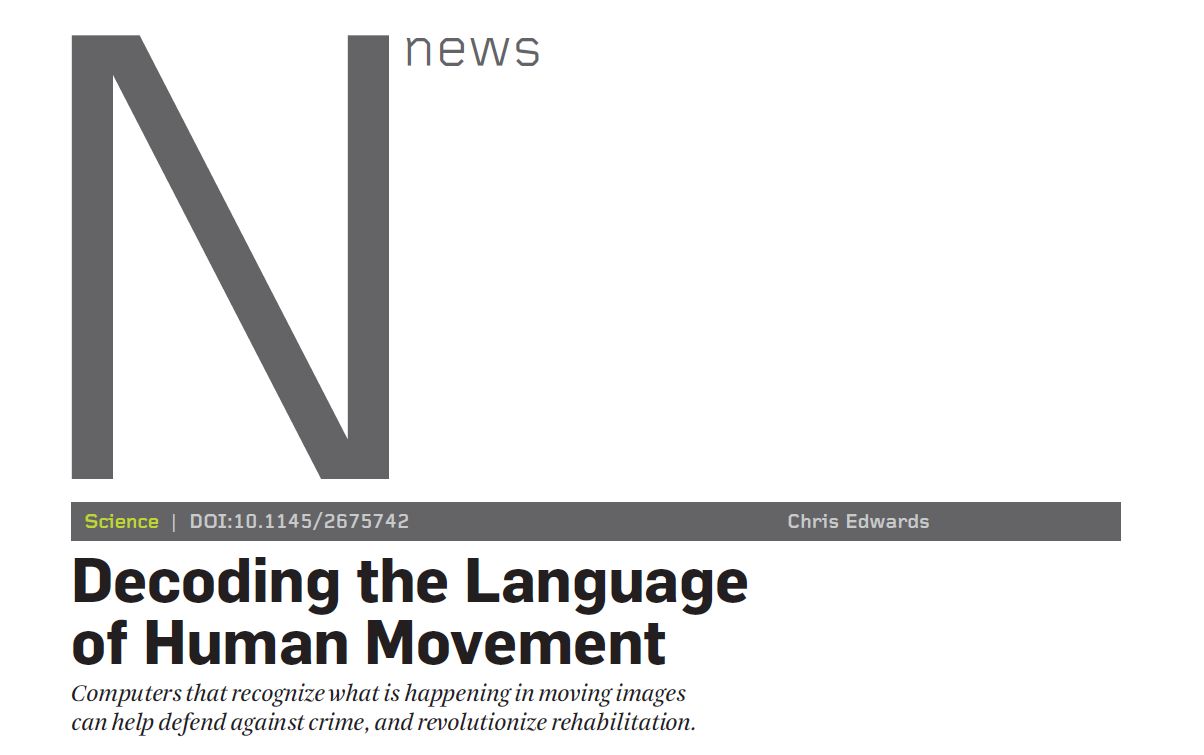 |
 Decoding the Language of Human Movement, by Chris Edwards
Decoding the Language of Human Movement, by Chris Edwards
Communications of the ACM, Vol. 57 No. 12, Pages 56-67, December 2014 "Computers that recognize what is happening in moving images can help defend against crime, and revolutionize rehabilitation." Our research on 'Episodic Reasoning for Vision-Based Human Action Recognition' is featured in this article. |
 |
 Des cameras intelligentes pour surveiller le quartier des Paquis a Geneve
Des cameras intelligentes pour surveiller le quartier des Paquis a Geneve
RTS INFO, Friday, 9 August 2013 Combattre la criminalite avec des cameras capables de detecter des comportements suspects. Geneve n'exclut pas de recourir a la videosurveillance dite "intelligente" dans son projet pilote pour les Paquis. Les autorites genevoises n'ont pas pris de decision finale. Le Grand Conseil se penchera sur la question surement cet automne. Mais quelles sont les capacites et limites de la videosurveillance intelligente? L'enquete de Jordan Davis. |
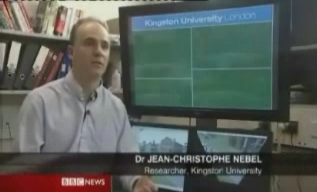 |
 New gun spotting role for CCTV
New gun spotting role for CCTV
BBC News 24, Tuesday, 20 March 2007 Experts are investigating whether CCTV cameras could be used to see if a person is carrying a weapon. |
|